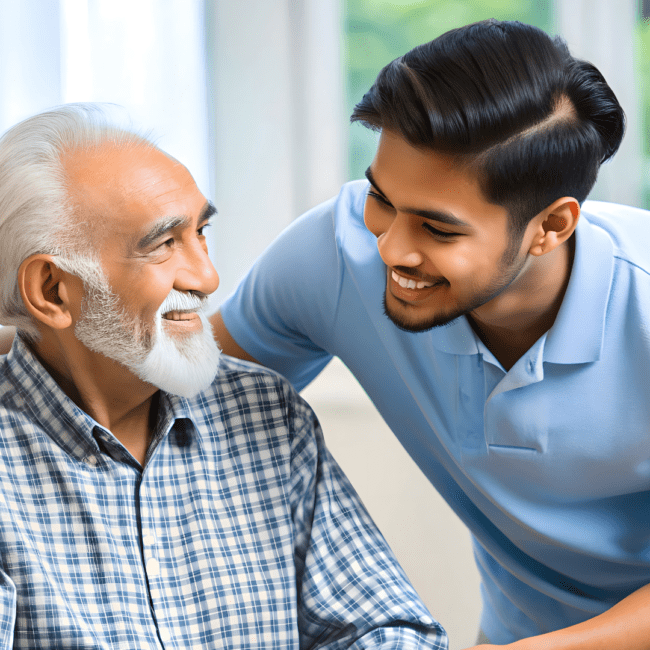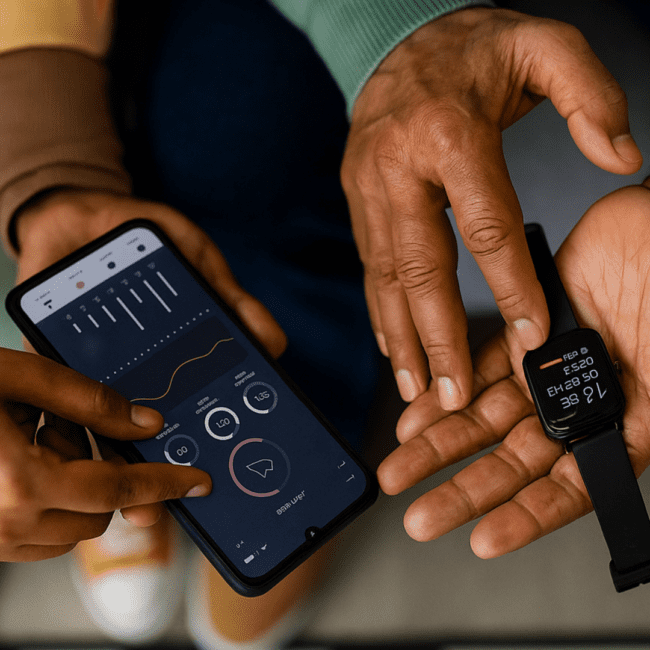Maintaining personal hygiene care for the elderly isn’t just about cleanliness; it’s about dignity, independence, and health. Yet, for many families, especially those living far from their ageing loved ones, managing day-to-day hygiene can become a silent challenge. As seniors age, physical limitations, cognitive decline, and emotional barriers may make even basic hygiene tasks overwhelming.
For NRIs and busy families in India, providing hygiene assistance from afar is possible with the right strategies and support systems. In-home care services are increasingly becoming a compassionate and practical solution, preserving both routine and respect for older adults who prefer staying in their own homes.
Why a Checklist Matters
When caring for an older adult, particularly from afar, it’s easy to miss small but essential hygiene tasks that impact their comfort, health, and dignity. This is where a structured checklist becomes an invaluable tool. It acts as a guide for family members and caregivers to:
- Ensure that personal hygiene for older people is consistent and thorough
- Identify patterns of decline or recurring concerns such as skin issues, odour, or neglect of grooming
- Help NRIs track hygiene care from a distance using caregiver logs or digital tools
- Maintain documentation for medical consultations, aiding doctors with daily behaviour patterns
- Offer clarity and continuity for rotating or substitute caregivers who may be unfamiliar with the routine
A hygiene checklist isn’t just a task manager; it’s a framework that supports ageing with dignity. It fosters accountability, improves communication among caregiving teams, and provides peace of mind to families, especially those who cannot be physically present.
By outlining essential routines, like bathing, oral care, nail trimming, and the use of elderly hygiene products, checklists make caregiving more efficient and personalised. They help ensure that older adults feel clean, confident, and cared for every single day.
Elderly Hygiene Checklist Categories
Supporting a senior in their hygiene routine means addressing several interconnected areas. Let’s break these down for easier management:
1. Daily Personal Hygiene and Grooming
Maintaining a daily routine helps older adults feel refreshed and confident. Consistent care supports both physical health and emotional well-being.
- Bathing or sponge cleaning (as per mobility and health)
- Washing face and hands multiple times a day to remove germs and feel fresh
- Hair brushing and scalp care to avoid matting and maintain hygiene
- Changing clothes daily to prevent skin irritation and maintain cleanliness
- Deodorant application and body odour checks to support confidence and social comfort
Tip: Use gentle, non-slip mats and shower chairs to make bathing safer and more comfortable while promoting independent personal hygiene care for the elderly.
2. Toileting and Incontinence Management
Toileting difficulties are common but manageable with empathy, consistency, and the right tools. A thoughtful approach can prevent discomfort and protect the dignity of your loved one.
- Scheduled toilet visits to establish a routine and reduce the risk of accidents
- Use of elderly hygiene products like adult diapers, waterproof bed protectors, or bedside commodes for added support
- Regular skin checks to catch early signs of rashes, infections, or pressure sores
- Gentle cleaning after each episode of incontinence using mild, pH-balanced wipes to protect skin health
- Discreet disposal routines to maintain cleanliness and privacy
Incontinence can be emotionally distressing; patience and reassurance are just as important as physical care in promoting comfort and dignity.
3. Oral, Skin, and Nail Care
Small grooming tasks can greatly affect a senior’s health, comfort, and self-esteem. Regular attention to these details helps maintain hygiene and detect early health concerns.
- Brushing teeth twice a day and cleaning dentures to prevent gum disease and bad breath
- Moisturising dry skin to avoid cracks, itching, and infection
- Gentle exfoliation and skincare, adjusted for humid or dry climates to keep skin healthy
- Regular nail trimming (both fingers and toes) to prevent pain, infections, and accidental scratching
- Observing for signs of infection, discolouration, swelling, or fungal issues during care
Routine grooming isn’t just cosmetic; it’s a key part of personal hygiene care for the elderly, helping them feel clean, cared for, and confident.
4. Use of Elderly Hygiene Products
Choosing the right elderly hygiene products improves comfort, convenience, and compliance for both seniors and caregivers. The right tools make hygiene routines smoother, safer, and more respectful.
- Easy-grip toothbrushes and razors for those with arthritis or a weak grip
- Rinse-free body wash and shampoo for waterless cleansing during limited mobility
- Bedpans, urinals, or toilet seat risers to support toileting independence and reduce fall risk
- No-rinse bathing wipes and skin cleansers for quick, gentle cleaning
- Diaper rash creams and antifungal powders to soothe and protect sensitive skin
Investing in quality products doesn’t just improve cleanliness; it preserves comfort, independence, and dignity during hygiene assistance.
5. Support for Bedridden or Cognitively Impaired Seniors
Those who are bedridden or suffer from conditions like dementia need extra care, patience, and sensitivity during hygiene routines. Their physical and cognitive limitations require a thoughtful, consistent approach.
- Regular repositioning to prevent bedsores and support healthy circulation
- Bed baths using warm water or rinse-free cleansing wipes to maintain cleanliness
- Applying barrier creams to protect delicate skin and prevent breakdown or infection
- Oral care, even if the individual is uncooperative, to maintain dental health and comfort
- Familiar scents, consistent routines, and soft lighting to reduce confusion and ease agitation
For seniors with dementia, hygiene tasks may trigger fear or resistance. Use calm tones, simple instructions, and break tasks into manageable steps. A gentle approach ensures that personal hygiene care for the elderly remains respectful, effective, and reassuring.
Technology for Remote Monitoring (For NRIs)
Being far from your ageing parent doesn’t mean you’re out of the loop. Technology can empower NRIs to stay connected and ensure their loved ones are receiving the personal hygiene care for the elderly they need and deserve. With the right digital tools, long-distance caregiving becomes more effective, transparent, and reassuring.
The journey of caring from afar is complex, marked by a blend of concern, guilt, and the practical difficulties of ensuring the well-being of loved ones.
Here’s how tech can support hygiene oversight:
- Hygiene tracking apps: Allow caregivers to log daily hygiene tasks, like bathing, grooming, or oral care, for families to monitor in real time.
- Smart sensors: Detect bathroom usage, track time spent on hygiene routines, and flag inactivity or unusual patterns.
- Video check-ins: Enable short visual calls during or after hygiene routines to assess grooming, cleanliness, or caregiver interaction.
- Caregiver reporting systems: Offer automated daily or weekly hygiene updates shared directly with families, ensuring accountability.
- Voice assistants: Gently prompt seniors about hygiene routines using reminders, alarms, or spoken cues in a friendly, familiar tone.
These tools help create a virtual care circle, bridging the physical gap between NRIs and their parents. More than just convenience, they offer peace of mind, ensuring hygiene assistance remains timely, respectful, and effective, even from thousands of kilometres away.
When to Seek Professional Help
Despite best efforts, there comes a time when managing daily hygiene at home becomes unsafe, overwhelming, or emotionally distressing for both the senior and their family. Recognising these signs early can help you take the right step towards ensuring safer, more dignified personal hygiene care for the elderly.
Signs that it’s time to get professional hygiene assistance include:
- Frequent accidents or increasing refusal to bathe, often linked to cognitive decline or discomfort
- Risk of falls in slippery bathrooms or while moving between spaces for hygiene routines
- Visible signs of neglect such as skin infections, untrimmed nails, bad odour, or poor oral hygiene
- Emotional resistance, agitation, or anxiety during hygiene tasks, especially in seniors with dementia
- Caregiver burnout, physical limitations, or emotional strain among family members trying to manage it all
When these signs appear, turning to trained in-home caregivers can make a meaningful difference. They offer skilled, gentle hygiene assistance tailored to your loved one’s needs, ensuring cleanliness, comfort, and confidence. Most importantly, they do this in the safety and familiarity of home, preserving dignity while lightening the emotional load for family members.
Don’t Wait to Address Hygiene Challenges
Good hygiene plays a vital role in physical health, emotional well-being, and self-respect. For older adults, especially those with mobility issues or cognitive decline, it can become a delicate area to manage. But with proactive planning, compassionate care, and the right tools, personal hygiene care for the elderly can be consistent, comfortable, and dignified.
Create a daily hygiene checklist. Talk openly about needs and comfort levels. Consider professional help when needed, and stay involved, even from afar.
Your presence, even virtual, brings peace of mind. Let that presence also bring hygiene, comfort, and dignity.
FAQs
1. How can caregivers help seniors maintain personal hygiene safely?
Caregivers can help by establishing routines, using safety aids like grab bars or shower chairs, and choosing gentle, elder-friendly products. Clear communication and respecting the senior’s preferences help maintain dignity during hygiene assistance.
2. What hygiene tasks do elderly individuals often need help with?
Common tasks include bathing, toileting, brushing teeth, nail trimming, dressing, and skin care. Seniors may also need help managing elderly hygiene products like adult diapers or specialised cleansers.
3. What are some tips for encouraging hygiene in seniors with dementia?
- Use calm, simple instructions
- Break tasks into small steps
- Maintain familiar routines and scents
- Avoid rushing; give them control where possible
- Praise cooperation to reinforce confidence






